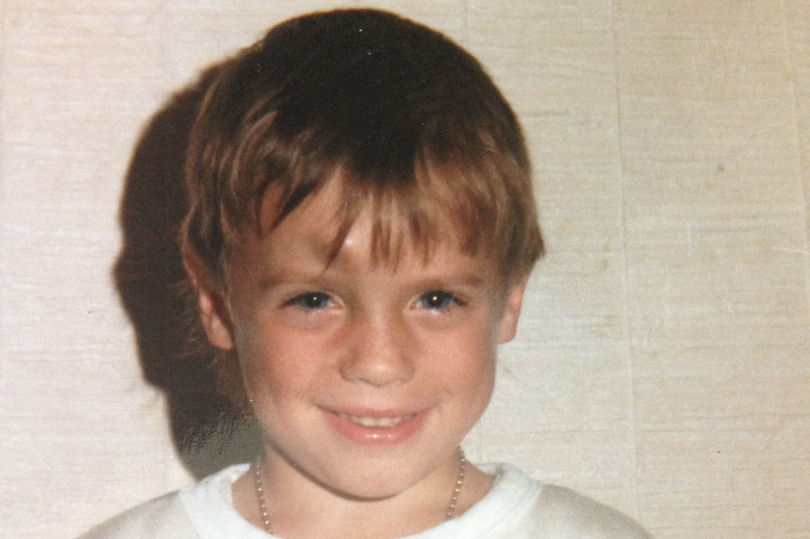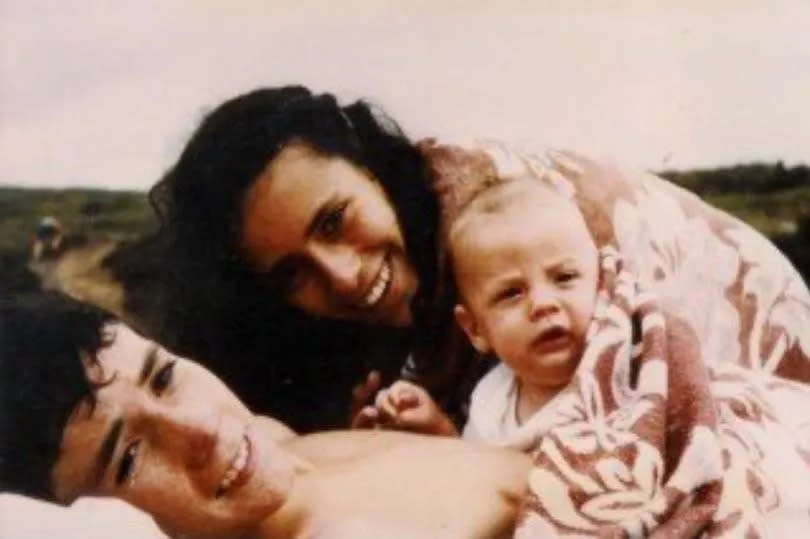Family says Plymouth boy was given infected blood 'death sentence'

The family of a Plymouth boy who died after receiving infected blood have welcomed the findings of an inquiry which reveals a cover-up but said it is “30 years too late”. The sister and brother of Colt Denver Price, who died aged just 10 years old, said he had been handed a “death sentence” by doctors in Plymouth.
Colt, a haemophiliac, was co-infected with HIV and Hepatitis C or B through contaminated Factor VIII (FVIII ) concentrate in the 1980s . He developed AIDS Related Complex and died as a result of complications of pneumonia in August 1992.
Colt's sister Sarah-Jane Ward and brother Troy Price, both from Plymouth, have been taking part in the Infected Blood Inquiry which today concluded that the treatment disaster could and should have been largely avoided.
Read next:
Inquiry chairman Sir Brian Langstaff’s report said patients were knowingly exposed to "unacceptable risks". The five-year investigation also accuses doctors, the Government and NHS of trying to cover-up what happened.
The 2,527-page report documents a “catalogue of failures” which had “catastrophic” consequences, not only among people infected with contaminated blood and blood products, but also their loved ones. More than 30,000 people were infected with HIV and hepatitis C from 1970 to 1991 by contaminated blood products and transfusions - about 3,000 have since died.
Mrs Ward today welcomed the report but said it had come too late. She said: “We took him (Colt) to hospital for treatment but instead he was given a death sentence. The inquiry, although welcomed, is 30 years too late as our dad is deceased and never had justice for his son and our brother's death.”
She said: "Our brother Colt was an innocent haemophiliac child victim of the imported blood tragedy. Colt was born in Plymouth and infected with tainted blood imported from the USA when he was a patient at Freedom Fields hospital.

“Colt was HIV positive aged three years old, diagnosed with AIDS aged five and died aged 10 years old. Colt lost his life when he was given imported blood against his parents wishes.”
In their witness statements to the inquiry, Mrs Ward and Mr Price stressed that Colt (also known as Colt Denver Sinclair) was treated with products against the wishes of his family.
Mrs Ward, in her statement, said: "When they became aware that some of the treatment wasn’t being screened, my Dad did a lot of research and expressly asked that the Haemophilia Centre not use FVIII concentrate from the USA that wasn’t treated."
In Mr Price’s witness statement he said: "Colt was given FVIII as a treatment without his parents’ consent and against their wishes. Our father expressly asked that the Haemophilia Centre not to use FVIII concentrate from the USA that wasn’t treated."
Neither Colt's father or mother are now alive. PlymouthLive contacted University Hospitals Plymouth NHS Trust about Colt’s case but the trust was unable to comment pending the results of the inquiry.
Mrs Ward said: ”Troy and I are extremely grateful to our MP Luke Pollard and we would also like to give thanks to the Infected Blood Inquiry team with a special mention to deputy chair Catherine Nalty and Panorama for telling Colt’s story.”
Following the publication of his report into the treatment disaster, Sir Brian Langstaff said his main point remained that a compensation scheme was needed now for all those affected by the scandal. But, he said repeated inquiries and reports have highlighted how the culture of the NHS needs to shift to one where mistakes are recognised and there is openness and transparency.
He said there was a need for culture change “such that safety is embedded as a first principle, and is regarded as an essential measure of the quality of care”. A review should also be carried out into the numerous regulatory bodies covering the NHS and how they work together, he said.
Click here to join PlymouthLive on WhatsApp and we'll send breaking news and top stories directly to your phone. We also treat our community members to special offers, promotions, and adverts from us and our partners. If you don’t like our community, you can check out any time you like. If you’re curious, you can read our Privacy Notice.

 Yahoo News
Yahoo News 
